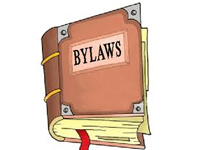
By-law disputes and the by-law making power
It is always pleasing to see the many interested lot owners and other community titles sector representatives at body corporate industry events, such as the recent expos I have attended.
In meeting and listening to people and hearing the questions audience members have of speakers at such events, I am aware of a level of concern in the sector that a body corporate’s by-laws may be open to challenge through the dispute resolution processes of my office. There appears to be a view that a by-law decided upon by a majority of owners in a scheme should not be overruled by an adjudicator determining an application by a single lot owner.
To my mind, this view is to some extent founded on the erroneous notion that a body corporate has, or should have, unfettered by-law making power.
By-laws are a set of enforceable rules governing a community titles scheme, regulating a variety of matters including the appearance and up-keep of lots, keeping of animals and parking on common property, just to name a few. By-laws are authored specifically for the scheme and contained in the community management statement for a community titles scheme or else taken from the standard by-laws in schedule 4 of the act.
The by-law making authority given to bodies corporate in the Body Corporate and Community Management Act 1997 is an important component of self-management in community titles schemes.
Significantly the by-law making power is not unfettered. By-laws must be consistent with the act.
Section 180 of the Act outlines limitations for by-laws including:
• a by-law that is inconsistent with the act, BCCM regulations or another act is invalid to the extent of the inconsistency;
• a by-law can not restrict the type of residential use of a lot where the lot may lawfully be used for residential purposes;
• a by-law can not prevent or restrict a transmission, transfer, mortgage or other dealing with a lot;
• a by-law must not discriminate between types of occupiers;
• a by-law (other than an exclusive use by-law) must not impose a monetary liability on the owner or occupier of a lot included in a community titles scheme;
• a by-law must not be oppressive or unreasonable, having regard to the interests of all owners and occupiers of lots included in the scheme and the use of the common property for the scheme.
The fact a by-law is recorded in the community management statement for a scheme does not mean the by-law is enforceable or valid. Section 115L (2) (b) of the Land Titles Act 1994 states it must not be presumed that a community management statement is valid or enforceable, including, for example, that the by-laws for the scheme included in the statement are valid and enforceable, because the registrar records it. Bodies corporate are responsible for ensuring the by-laws they adopt are consistent with the act and other relevant legislation.
Disputes about by-laws, if unable to be resolved through a body corporate’s internal processes including the by-law contravention process set out in the act, may be the subject of a dispute resolution application to the BCCM Office. Ultimately an adjudicator may be called upon to determine the validity of a by-law or the validity of a decision made by a body corporate about the application of a by-law.
Pet by-laws stand out as an area of frequent dispute. So much so that earlier this year I wrote an article discussing the recent adjudicators’ orders and QCAT decisions on the topic. I pointed out that in Body Corporate for River City Apartments v McGarvey [2012] QCATA 47 QCAT found a by-law that prohibits the keeping of pets in lots is not a by-law regulating the use or enjoyment of lots but purports to prohibit a particular use and type of enjoyment altogether. It therefore goes beyond the scope of a valid by-law permitted by section 169 and is invalid.
I also discussed the 2012 adjudicator’s decision in Warwick Court [2012] QBCCMCmr 550, http://www.austlii.edu.au/au/cases/qld/QBCCMCmr/2012/550.html in which the adjudicator pointed out that many owners in schemes with a permissive by-law (that is, a by-law to the effect that the keeping of pets is not permitted except with the prior written consent of the body corporate) take the by-law to mean pets are not allowed.
The adjudicator stated that this is not the case and it is the responsibility of the body corporate administering such a by-law to properly exercise its discretion by considering each request to keep a pet on its merits. The adjudicator went on to say that the primary issue for a body corporate considering a pet application is the likelihood of an adverse impact on common property or any person. Where there are genuine concerns, the imposition of reasonable conditions on keeping the pet may be more reasonable than outright refusal.
More recently the adjudicator in Island Terraces [2013] QBCCMCmr 311 dismissed an application for an order seeking approval to keep a dog in a community titles scheme. In the circumstances of that dispute, a body corporate with a permissive by-law was commencing a process to remove the animal from the scheme on the basis of issues concerning the management of the pet and its behaviour.
While pet by-laws are frequently in dispute, the BCCM Office regularly deals with disputes about a range of other by-law issues.
A lot owner who is concerned a by-law is invalid or is concerned about the application of the by-law by the body corporate, is entitled to raise the issue with their body corporate. If the issue can not be resolved, the lot owner can make application under the dispute resolution provisions of the act seeking to conciliate the dispute and, if necessary, seeking an adjudicator’s order to determine the issue.
On behalf of the BCCM Office I wish readers a very happy and safe festive season!

AccomNews is not affiliated with any government agency, body or political party. We are an independently owned, family-operated magazine.





